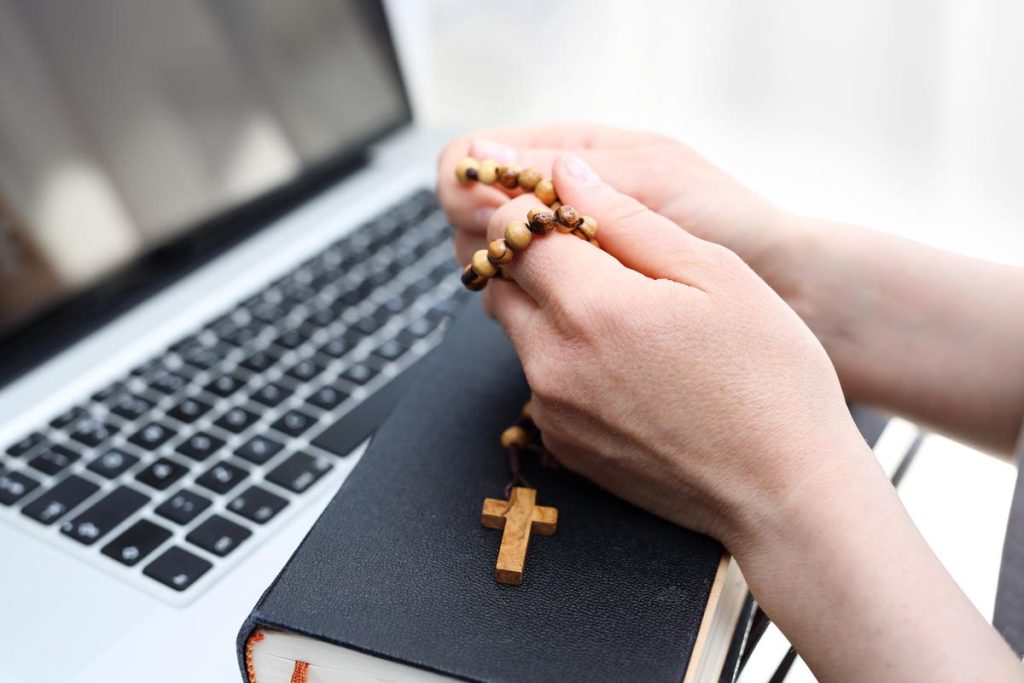Earlier this year, Oklahoma State Attorney General Gentner Drummond issued an opinion about the prospect of the state approving a church-run charter school. He was reversing the opinion of his predecessor, saying that previous opinion “misuses the concept of religious liberty by employing it as a means to justify state-funded religion. If allowed to remain in force, I fear the opinion will be used as a basis for taxpayer-funded religious schools.”
This week, the Oklahoma Statewide Virtual Charter School Board ignored him and approved the St. Isidore of Seville virtual charter, a cyber school that was proposed by the Archdiocese of Oklahoma City in collaboration with the Diocese of Tulsa. It was in anticipation of this application that the virtual charter board asked the previous AG for an opinion in the first place.
As an AP report notes, “Archdiocese officials have been unequivocal that the school will promote the Catholic faith and operate according to church doctrine, including its views on sexual orientation and gender identity.”
The argument in favor of the approval rests on a couple of points. One is the belief, expressed by the Chancellor of Archdiocese of Oklahoma City Michael Scaperlanda, that “charter schools are not public actors and not state actors.” In other words, they are not really public schools and therefor not held to public school rules. It’s a question that the Supreme Court may choose to decide if it takes up Peltier v. Charter Day School, a case involving a charter school dress code, in which the charter school asserts that it is not subject to non-discrimination rules because it is not a public school.
The argument also rests on Carson v. Makin, the case in which the Supreme Court told Maine that if it funded non-religious choices, it must fund religious ones as well.
State Superintendent Ryan Walters supported the decision:
This decision reflects months of hard work, and more importantly, the will of the people of Oklahoma. I encouraged the board to approve this monumental decision, and now the U.S.’s first religious charter school will be welcomed by my administration.
Governor Stitt hailed it as “a win for religious liberty and education freedom in our great state.”
Meanwhile, AG Drummond called the decision “contrary to Oklahoma law and not in the best interests of taxpayers.” Furthermore, “It’s extremely disappointing that board members violated their oath in order to fund religious schools with our tax dollars. In doing so, these members have exposed themselves and the state to potential legal action that could be costly.”
Americans United for Separation of Church and State are already preparing such a lawsuit. Amanda Marcotte argues that this is part of the point, that supporters hope this case could make its way to the Supreme Court as a way to further challenge the already-beaten-down wall between church and state.
Drummond may yet thwart the vote of the virtual school board; his office has said they believe that one new board member was not supposed to start his term until November and was therefore ineligible to vote on the matter.
Nina Rees, the President and CEO of the National Alliance for Public Charter Schools, disagreed with the decision. Arguing that charter schools are meant to be public schools and therefor “must be non-sectarian.” Rees says, “The Archdiocese of Oklahoma City is trying to make charter schools into something they are not.”
The nature of charter schools may be the ultimate issue in this case. The Oklahoma decision not only requires taxpayer to support not only a religious school, but selects a specific denomination. This puts the state in the business of deciding which churches can be eligible as well as holding them accountable for the rules governing public schools.
If, as the archdiocese is hoping, the bottom line is that charter schools are not public schools at all, than a major premise for the charter school movement is gone. Charters would compete directly with private schools that accept vouchers, but charters would still have to contend with rules such as a need for authorization and a requirement to meet the terms of an agreement with those authorizers, unlike private schools that can open or close as they please. Calling themselves “public” has also been a powerful marketing tool for charter schools, an implicit promise that they have the standards and stability of a traditional public school.
So there’s a great deal riding on Oklahoma’s decision to set up the country’s first religious charter, especially if the challenge to the decision makes it all the way to the Supreme Court.
Read the full article here










